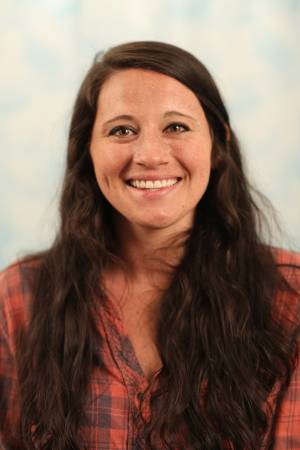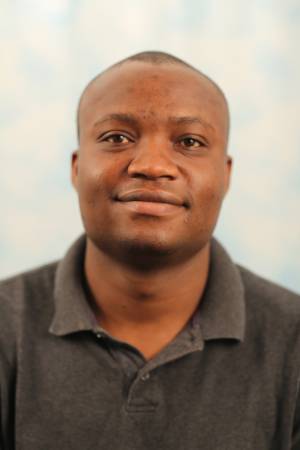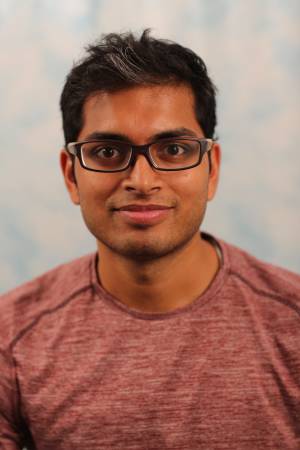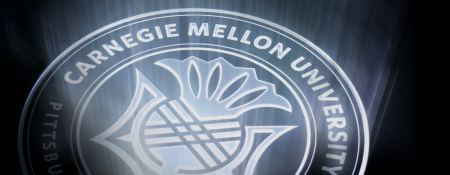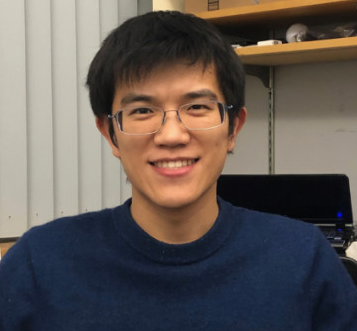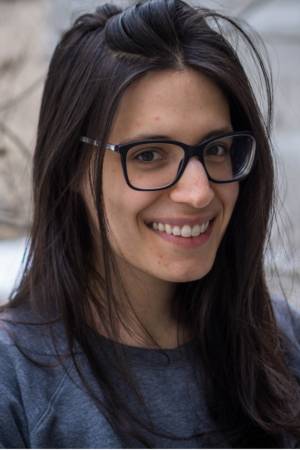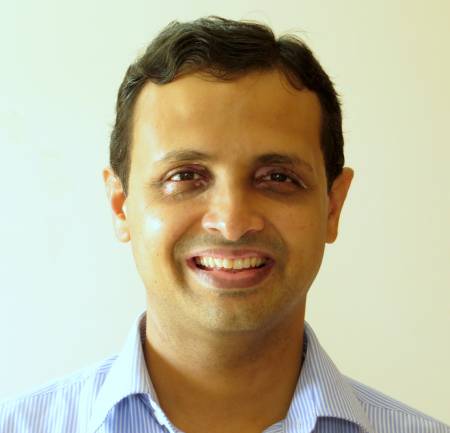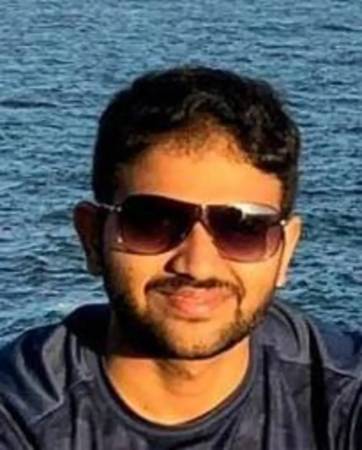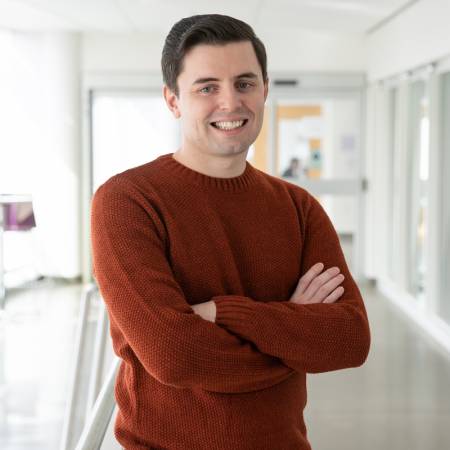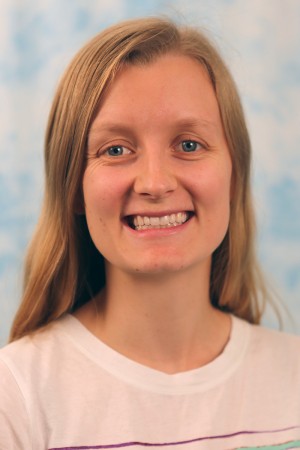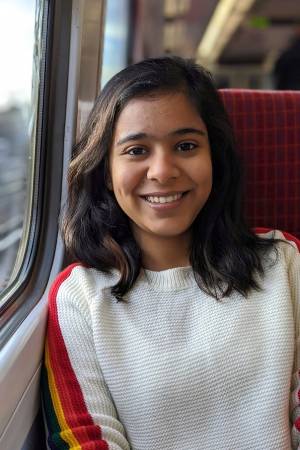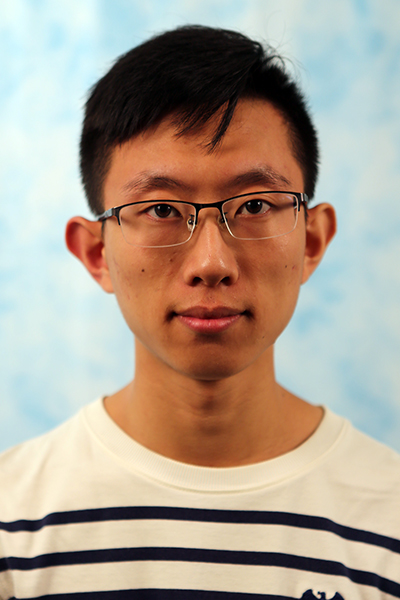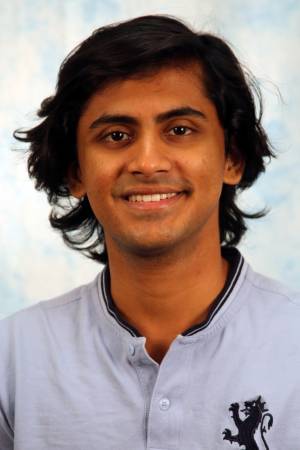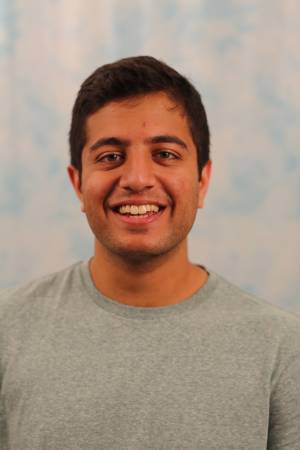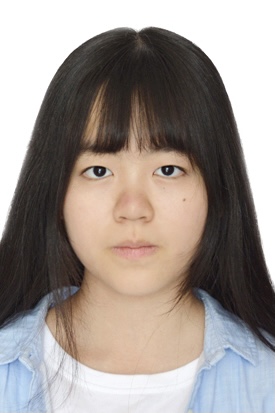Estimating Robustness using Proxies
ABSTRACT: This talk covers some of our recent explorations on estimating the robustness of black-box machine learning models across data subpopulations. In other words, if a trained model is uniformly accurate across different types of inputs, or if there are significant performance disparities affecting the different subpopulations. Measuring such a characteristic is fairly straightforward if [...]
Analogy-Forming Transformers for Few-Shot 3D Parsing
Abstract: How do we build agents that can fast generalize to novel scenarios given only a single example? In this talk, I will present analogy-forming transformers, a semi-parametric model that segments 3D object scenes by retrieving related memories and predicting analogous part structures for the input. This enables a single neural network to continually learn [...]
Range-based Gaussian Process Maps for Mobile Exploration Robots
Abstract: Mobile robots exploring unknown, natural environments with limited communication must map their surroundings using onboard sensors. In this context, terrain mapping can rely on Gaussian process models to incorporate spatial correlations and provide uncertainty estimates when predicting ground height - however, these models fail to account for the oblique viewpoint of a sensor on [...]
Learning Exploration Strategies to Solve Real-World Marble Runs
Abstract: Tasks involving locally unstable or discontinuous dynamics (such as bifurcations and collisions) remain challenging in robotics, because small variations in the environment can have a significant impact on task outcomes. In this talk, we present a robot system that we developed to evaluate learning algorithms on real-world physical problem solving tasks which incorporate these [...]
Beyond NeRF Underwater: Learning Neural Reflectance Fields for True Color Correction of Marine Imagery
Abstract: Underwater imagery often exhibits distorted coloration as a result of light-water interactions, which complicates the study of benthic environments in marine biology and geography. In this research, we propose an algorithm to restore the true color (albedo) in underwater imagery by jointly learning the effects of the medium and neural scene representations. Our approach [...]
RI Faculty Business Meeting
Meeting for RI Faculty. Discussions include various department topics, policies, and procedures. Generally meets weekly.
Carnegie Mellon University
Optimization of Small Unmanned Ground Vehicle Design using Reconfigurability, Mobility, and Complexity
Abstract: Unmanned ground vehicles are being deployed in increasingly diverse and complex environments. With modern developments in sensing and planning, the field of ground vehicle mobility presents rich possibilities for mechanical innovations that may be especially relevant for unmanned systems. In particular, reconfigurability may enable vehicles to traverse a wider set of terrains with greater [...]
Force-Torque Sensors – Calibration & Estimation
Abstract: Wrist force-torque sensors were among the first proprioception sensors to be developed when robotics emerged as a field. They are now a mature technology already used in structured industrial applications like sanding and drilling. While they provide essential feedback in many manipulation algorithms, they do not garner as much excitement as exteroception sensors like [...]
Optimized Tradeoffs for Differentially Private Majority Ensembling
Abstract: Inspired by the common subtask of ensembling or calibrating private models, we study the problem of computing an m*epsilon-differentially private majority of K epsilon-differentially private algorithms for m < K. We introduce a general framework to compute the private majority via Randomized Response (RRM) with a data-dependent noise function gamma that subsumes any non-trivial [...]
Carnegie Mellon University
Spectral Mapping using Simple Sensors for Micro-Explorers
Abstract: Spectral mapping is an essential task in exploration as it expands our understanding of material composition in an explored region. Although imaging spectrometers are ideal for obtaining spectra to construct spectral maps, their large size, high power consumption, and operational complexity make them impractical for small rovers and limited missions. In contrast, RGB cameras [...]
Latent-NeRF for Shape-Guided Generation of 3D Shapes and Textures
Abstract: In this talk, I will focus on presenting my recent work which will be presented at CVPR in less than two months. Text-guided image generation has progressed rapidly in recent years, inspiring major breakthroughs in text-guided shape generation. Recently, it has been shown that using score distillation, one can successfully text-guide a NeRF model to [...]
Simulation-driven vision-based tactile sensor design using Physics Based Rendering
Abstract: Touch is an essential sensing modality for making autonomous robots more dexterous and works collaboratively with humans. With the advent of vision-based tactile sensors, roboticists have tried to incorporate tactile sensors in various robot structures for various robotic manipulation tasks to increase robustness, precision, and reliability. However, the design of vision-based tactile sensors is [...]
Efficient Interactive Learning with Unobserved Confounders
Abstract: Interactive learning systems like self-driving cars, recommender systems, and large language model chatbots are becoming increasingly ubiquitous in everyday life. From a machine learning perspective, the key technical challenge underlying such systems is that rather than simple prediction on i.i.d. data, an interactive learner influences the distribution of inputs it sees via the choices [...]
Carnegie Mellon University
Towards Reconstructing Non-rigidity from Single Camera
Abstract: In this talk we will discuss how to infer 3D from images captured by a single camera, without assuming the target scenes / objects being static. The non-static setting makes our problem ill-posed and challenging to solve, but is vital in practical applications where target-of-interest is non-static. To solve ill-posed problems, the current trend [...]
SCS Master’s Diploma Ceremony followed by Reception
Ceremony: 11:30 a.m. Auditorium, Soldiers & Sailors Memorial Hall & Museum 4141 Fifth Avenue, Pittsburgh, PA 15213 Reception: Following ceremony Grand Ballroom, Soldiers & Sailors Memorial Hall & Museum 4141 Fifth Avenue, Pittsburgh, PA 15213
SCS PhD Hooding Ceremony followed by Reception
SCS PhD Hooding Ceremony: 11 a.m. Kresge Theatre, College of Fine ArtsReception: Following ceremony Gates Hillman Center, 6th floor
The President’s Reception in honor of CMU’s Doctoral Candidates
Commencement Ceremony
UG Diploma Ceremony followed by Reception
Navigating to Objects in the Real World
Abstract: Semantic navigation is necessary to deploy mobile robots in uncontrolled environments like our homes, schools, and hospitals. Many learning-based approaches have been proposed in response to the lack of semantic understanding of the classical pipeline for spatial navigation, which builds a geometric map using depth sensors and plans to reach point goals. Broadly, end-to-end [...]
RI Faculty Social
Please join us for our RI Faculty Social. Heavy appetizers and beverages will be served.
MSR Thesis Talk: Sarvesh Patil
Title: Soft Delta Robots for Dexterous Manipulation Abstract: Dexterous manipulation capabilities of end-effectors afford us a wide range of strategies for fine-grained manipulation tasks. Recent utilization of readily available materials like soft filaments and silicone elastomers has enabled the development of low-cost mechanically intelligent robotic manipulators. This is important for democratizing robot manipulation and increasing [...]
Large Scale Dense 3D Reconstruction via Sparse Representations
Abstract: Dense 3D scene reconstruction is in high demand today for view synthesis, navigation, and autonomous driving. A practical reconstruction system inputs multi-view scans of the target using RGB-D cameras, LiDARs, or monocular cameras, computes sensor poses, and outputs scene reconstructions. These algorithms are computationally expensive and memory-intensive due to the presence of 3D data. [...]
MSR Thesis Talk: Fan Yang
Title: Exploring Safe Reinforcement Learning for Sequential Decision Making Abstract: Safe Reinforcement Learning (RL) focuses on the problem of training a policy to maximize the reward while ensuring safety. It is an important step towards applying RL to safety-critical real-world applications. However, safe RL is challenging due to the trade-off between the two objectives [...]
Active Search for Reconnaissance and Rescue
RI Faculty Business Meeting
Meeting for RI Faculty. Discussions include various department topics, policies, and procedures. Generally meets weekly.
Going Beyond Continual Learning: Towards Organic Lifelong Learning
Abstract: Supervised learning, the harbinger of machine learning over the last decade, has had tremendous impact across application domains in recent years. However, the notion of a static trained machine learning model is becoming increasingly limiting, as these models are deployed in changing and evolving environments. Among a few related settings, continual learning has gained significant [...]
Incorporating Robustness into Learning-Based Aircraft Detection and Tracking Systems
Abstract: In the field of aviation, the Detect and Avoid (DAA) problem deals with incorporating collision avoidance capabilities into current autopilot navigation systems. In order to standardize DAA capabilities, ASTM has published performance requirements to define safe DAA operations of unmanned aircraft systems (UAS). However, the performance of DAA models are entirely dependent on the [...]
RI Faculty Business Meeting
Meeting for RI Faculty. Discussions include various department topics, policies, and procedures. Generally meets weekly.
RI Faculty Business Meeting
Meeting for RI Faculty. Discussions include various department topics, policies, and procedures. Generally meets weekly.
Carnegie Mellon University
MSR Thesis Talk: Siddarth Venkatraman
Title: Latent Skill Models for Offline Reinforcement Learning Abstract: Offline reinforcement learning (RL) holds promise as a means to learn high-value policies from a static dataset, without the need for further environment interactions. However, a key challenge in offline RL lies in effectively stitching portions of suboptimal trajectories from the static dataset while avoiding extrapolation [...]
Predictive Scene Representations for Embodied Visual Search
Abstract: My research advances embodied AI by developing large-scale datasets and state-of-the-art algorithms. In my talk, I will specifically focus on the embodied visual search problem, which aims to enable intelligent search for robots and augmented reality (AR) assistants. Embodied visual search manifests as the visual navigation problem in robotics, where a mobile agent must efficiently navigate [...]
Long-Tailed 3D Detection via Multi-Modal Fusion
Abstract: Contemporary autonomous vehicle (AV) benchmarks have advanced techniques for training 3D detectors, particularly on large-scale LiDAR data. Surprisingly, although semantic class labels naturally follow a long-tailed distribution, these benchmarks focus on only a few common classes (e.g., pedestrian and car) and neglect many rare classes in-the-tail (e.g., debris and stroller). However, in the real [...]
TBA
MSR Thesis Talk: Eric Schneider
Title: Phenotyping and Skeletonization for Agricultural Robotics Abstract: Scientific phenotyping of plants is a crucial aspect of experimental plant breeding. By accurately measuring plant characteristics, phenotyping plays a vital role in the development of new plant varieties that are better adapted to specific environments and have improved yield, quality, and resistance to stress and disease. In [...]
MSR Thesis Talk: Shivesh Khaitan
Zoom Link: https://cmu.zoom.us/j/95273358670?pwd=Z09Jc3g1aDV1dTdTMEVUWUwxcUZPQT09 Meeting ID: 952 7335 8670 Passcode: 050721 Title: Exploring Reinforcement Learning approaches for Safety Critical EnvironmentsAbstract: Reinforcement Learning (RL) has emerged as a powerful paradigm for addressing challenging decision-making and robotic control tasks. By leveraging the principles of trial-and-error learning, RL algorithms enable agents to learn optimal strategies through interactions with an environment. However, [...]
MSR Thesis Talk: Ravi Tej Akella
Title: Distributional Distance Classifiers for Goal-Conditioned Reinforcement Learning Abstract: Autonomous systems are increasingly being deployed in stochastic real-world environments. Often, these agents are trying to find the shortest path to a commanded goal. But what does it mean to find the shortest path in stochastic environments, where every strategy has a non-zero probability of failing? At [...]
MSR Thesis Talk: Seth Karten
Title: Emergent Communication and Decision-Making in Multi-Agent Teams Abstract: Explicit communication among humans is key to coordinating and learning. In multi-agent reinforcement learning for partially-observable environments, agents may convey information to others via learned communication, allowing the team to complete its task. However, agents need to be able to communicate more than simply referential messages [...]
MSR Thesis Talk: Sashank Tirumala
Title: Tactile Sensing applied to deformable object manipulation Abstract: The application of robotic manipulation of deformable materials, such as cloth, spans various sectors including fabric manufacturing and domestic laundry management. Historically, most methodologies have employed vision-based sensors as the proprioceptive input to robot policies. However, this study aims to explore an alternate route by leveraging [...]
Special RI Seminar
Title: Testing, Analysis, and Specification for Robust and Reliable Robot Software Abstract: Building robust and reliable robotic software is an inherently challenging feat that requires substantial expertise across a variety of disciplines. Despite that, writing robot software has never been easier thanks to software frameworks such as ROS: At its best, ROS allows newcomers to assemble simple, [...]
MSR Thesis Talk: Zhizhu Zhao
Title: Distilling View-conditioned Diffusion for 3D Reconstruction Abstract: We propose a 3D neural mode-seeking formulation that combines probabilistic generation of unseen regions with faithful reprojection of seen regions in a consistent 3D representation. Feature reprojection methods (NerFormer, PixelNeRF) are 3D consistent, but fail to hallucinate unseen regions. Image generation methods (ViewFormer) generate plausible hallucinations, but generated [...]
Differentiable Fluid-Structure Interaction for Robotics
Abstract: We present Aquarium, a differentiable fluid-structure interaction solver for robotics that offers stable simulation, accurately coupled fluid-robot physics in two dimensions, and full differentiability with respect to fluid and robot states and parameters. Aquarium achieves stable simulation with accurate flow physics by directly integrating over the incompressible Navier-Stokes equations using a fully implicit Crank-Nicolson [...]
MSR Thesis Talk: Khiem Vuong
Title: Scaling up Camera Calibration and Amodal 3D Object Reconstruction for Smart Cities Abstract: Smart cities integrate thousands of outdoor cameras to enhance urban infrastructure, but their automated analysis potential remains untapped due to various challenges. Firstly, the lack of accurate camera calibration information, such as its intrinsics parameters and external orientation, restricts the measurement [...]
From Reinforcement Learning to Robot Learning: Leveraging Prior Data and Shared Evaluation
Abstract: Unlike most machine learning applications, robotics involves physical constraints that make off-the-shelf learning challenging. Difficulties in large-scale data collection and training present a major roadblock to applying today’s data-intensive algorithms. Robot learning has an additional roadblock in evaluation: every physical space is different, making results across labs inconsistent. Two common assumptions of the robot [...]
MSR Thesis Talk: Tianyuan Zhang
Title: Surface Ripples: Analyzing Transient Vibrations on Object's Surfaces Abstract: The subtle vibrations on an object's surface contain information about its physical properties and interaction with the environment. Prior works imaged surface vibration to recover the object's material properties via modal analysis, which discards the transient vibrations propagating immediately after the object is disturbed. In this [...]
MSR Thesis Talk: Anurag Ghosh
Title: Learned Two-Plane Perspective Prior based Image Resampling for Efficient Object Detection Abstract: Real-time efficient perception is critical for autonomous navigation and city scale sensing. Orthogonal to architectural improvements, streaming perception approaches have exploited adaptive sampling improving real-time detection performance. In this work, we propose a learnable geometry-guided prior that incorporates rough geometry of the [...]
MSR Thesis Talk: David Russell
Title: Using Drones and Remote Sensing to Understand Forests with Limited Labeled Data Abstract: Drones and remote sensing can provide observations of forests at scale, but this raw data needs to be interpreted to further scientific understanding and inform effective management decisions. This thesis studies two problems under the realistic constraint of limited domain-specific training [...]
MSR Thesis TallK: Aarrushi Shandilya
Title: Lights, Camera, Render: Neural Fields for Structured Lighting Abstract: 3D scene reconstruction from 2D image supervision alone is an under-constrained problem. Recent neural rendering frameworks have made great strides in learning 3D scene representations to enable novel view synthesis, but they struggle to reconstruct geometry of low-texture regions or from sparse views. The prevalence of active [...]
Building 4D Models of Objects and Scenes from Monocular Videos
Abstract: We explore how to infer the time-varying 3D structures of generic, deformable objects, and dynamic scenes from monocular videos. A solution to this problem is essential for virtual reality and robotics applications. However, inferring 4D structures given 2D observations is challenging due to its under-constrained nature. In a casual setup where there is neither [...]
MSR Thesis Talk: Anirudha Ramesh
Title: Learning to See in the Dark and Beyond Abstract: Robotic Perception in diverse domains such as low-light scenarios remains a challenge, even upon the employment of new sensing modalities like thermal imaging and specialized night-vision sensors. This is largely due to the high difficulty in obtaining labeled data for certain tasks. In this work, [...]
MSR Thesis Talk: Mateo Guaman Castro
Title: Self-Supervised Costmap Learning for Off-Road Vehicle Traversability Abstract: Estimating terrain traversability in off-road environments requires reasoning about complex interaction dynamics between the robot and these terrains. However, it is challenging to build an accurate physics model, or create informative labels to learn a model in a supervised manner, for these interactions. We propose a method [...]
TBA
Learning to Manipulate Using Diverse Datasets
Abstract: Manipulation is a key challenge in the robotic fields that impedes the deployment of robots in real-world scenarios. While notable advancements have been made in solving high/mid level planning problems, such as decomposing tasks (e.g. "bring me a bottle") into primitives (e.g. "pick up bottle"), the acquisition of fundamental manipulation primitives remains a difficult [...]
MSR Thesis Talk: Gaoyue Zhou
Title: On Generalization and Benchmarking on Physical Robots Abstract: Robotics research has seen significant advancements; however, the field remains predominantly demo-driven, making direct comparisons between methods difficult without replicating them on individual setups. While many simulation benchmarks exist, they usually feature contrived datasets and do not accurately reflect real-world performance. In my thesis, we [...]
Robotics Institute Faculty Retreat
RI Faculty, please hold the date for the 2023 Robotics Institute Faculty Retreat. Invitations and agenda info to follow when it becomes available.
An Effective Learning Framework for Active Perception and a Case Study on Liquid Property Estimation
Abstract: Active perception refers to a perception process where robot actions are taken to improve perception. To do this, the robot needs an observation model that knows what it will observe based on the actions it takes. However, existing approaches struggle to learn a good observation model since it needs to account for all possible [...]
MSR Thesis Talk: Heng Yu
Title: Towards Real-time Controllable Neural Face Avatars Abstract: Neural Radiance Fields (NeRF) are compelling techniques for modeling dynamic 3D scenes from 2D image collections. These volumetric representations would be well suited for synthesizing novel facial expressions but for three problems. First, deformable NeRFs are object agnostic and model holistic movement of the scene: they can [...]
MSR Thesis Talk: Winnie Kuang
Title: Design and Integration of Semantic Mapping System for Forest Fire Mitigation Abstract: Remote sensing technologies can provide an automated approach to monitor and analyze conditions in the forest environment over a period of time for forest maintenance and wildfire mitigation efforts. In particular, unmanned aerial vehicles (UAVs) are a promising remote sensing modality since they [...]
MSR Thesis Talk: Jinqi Luo
Title: Vision Model Diagnosis: A Generative Perspective Abstract: In the evolving landscape of computer vision, deep learning has emerged as a transformative force, enhancing a myriad of societal facets. The real-world deployment of such a deep vision model requires a reliable evaluation, particularly when the model can have different sensitivities across various semantic attributes and concepts. [...]

